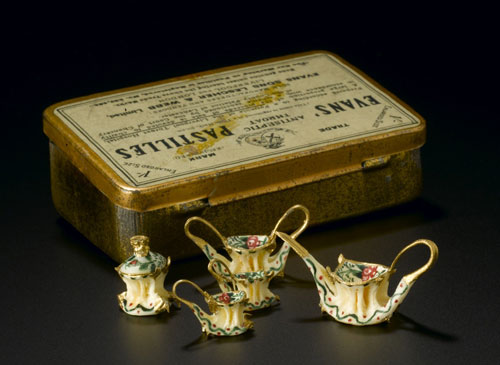Teacup – Tea cup – Cup, tea: Same difference, right?
Wrong!
Every museum needs a friendly pedant (or two!) to keep their terminology in line and earlier this month I organised a workshop to help colleagues across Scotland, all members of the Scottish Collections Managers Forum, to do just that. The Forum is a skills sharing network for those of us in the museum business who care for and document the nation’s many and varied collections. We usually meet twice a year, but this was our first formal training event and we were very pleased to welcome Dave Forster of ADLiB Information Systems to deliver the training.
Now, it takes a special kind of person to really care what you call a teacup, but I’ve already let the cat out of the bag, I’m a pedant and there are those of us out there who know that it really does matter! You see, computers aren’t half as clever as they think they are, and they don’t understand that ‘teacup’, ‘tea cup’ and ‘cup, tea’ all mean the same thing.
Even if you’re not working in a computer based database, being consistent in how you record information like object names, categories, materials (and the list goes on) makes all the difference when you’re trying to retrieve information. If you are lucky enough to have an all singing, all dancing database then you can also create relationships between your terms. This can help account for different spellings and help to group related terms together. For instance, having all the different types of metal like copper and iron and lead grouped together under ‘metal’ means that you can find everything that has metal in it without searching for each type individually.
A big thank you goes to Megan Combe, National Partnerships Officer, who helped me with the organising and The Royal College of Surgeons of Edinburgh who provided a free venue. Last but not least to Dave, who made a potentially mind-bending (and, OK, I’ll admit it, maybe slightly dry) topic understandable and engaging.
So, spare a thought for me and my colleagues who have 124,673 object names to check and standardise, before moving on to 67,481 place names, 8,007 material terms… It’s ok, we relish a challenge!
